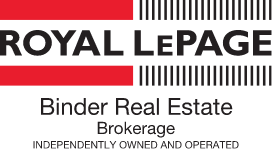There are a million different reasons why people sell their homes, but every seller has one thing in common: the desire to get as much money as possible from their existing residence as quickly and as hassle-free as possible. (If your home is your principal residence, you won't have to pay capital gains tax on any profits from the sale. If, on the other hand, it is an investment property, prepare for the tax man!)
Before you begin the selling process, really evaluate why you're moving. Do you have too few rooms, or too many? Has your job moved to another city and you're relocating? Are the neighbours driving you away? Or are you simply looking for a change? A complete analysis of your current position will set a good foundation for your next home hunt.
Buy or Sell First?
Buy or sell first? That's tricky. After all, if you find a purchaser for your existing home, before you've found a new one, you may find yourself living out of a suitcase if convenient closing dates can not be negotiated. On the other hand, if you find your dream home before you've unloaded your old one, you may be faced with carrying two mortgages for a time.
So how do you manage? Easy. Do your homework and have a good idea about the neighbourhood and type of home you're looking for. Do an honest evaluation of your family's needs and budget.
Speak to your sales representative and start your new home search as soon as your existing home hits the market.
If you've found a home, before you've sold your existing one, use "sale of your existing home" as a condition on your offer. If you don't sell your house within a fixed period of time, you can choose not to go through with the offer. This, however, is a difficult condition for many vendors to agree upon and you may find that you have to forgo your price negotiating power.
Purchasing a home before you sell could be a risky strategy if you're counting on the proceeds from the sale.
If you've found a purchaser before you've found your next home, use "purchase of a new home" as a condition when you sign back the agreement. Again, it will only be for a fixed time. Even if you have not found the ideal next house by the time the deal closes, you may still wish to proceed with the offer. As a buyer with a "sold house" you will be in a better position to negotiate price.
Make Your House More Sellable
While we all believe that our home is our castle, our personal tastes may not appeal to everyone. Your sales representative will work with you to give you an impartial analysis of your home - how it relates to other "competing" homes on the market and how your home reflects current design and style trends. Your sales representative will also take a good look at the general condition and upkeep of your dwelling.
Overall, your sales representative will work with you to position your home on the market so that your sales experience will take place as expeditiously as possible.
Advertise Your Home on MLS®
This service is only available to real estate sales representatives. It is a database of all the homes for sale through sales representatives. Details about your home will be available to other sales representatives searching for homes in your area, in the range of your asking price.
Arrange Showings
In addition to giving your home the once over with a mop and dust cloth, have your sales representative prepare a home feature sheet. This is a one page synopsis of your home that highlights lot size, room dimensions, features and upgrades as well as utility costs and taxes. Prospective buyers will take a sheet and refer to it while viewing your home. Plus, it makes for a great reference sheet when the buyers are comparing properties.
The Open House
Your home can get a lot of exposure through an open house. Your Realtor can advertise the open house on many platforms i.e. real estate websites, social media, industry networks and perhaps even print media. Open houses can attract potential buyers who do not have a Realtor and don’t know where to start.
Some cons to an open house are safety and security concerns. Realtors would have potential buyers sign a guest registry to get personal info for visitors. It is very difficult for Realtors to keep an eye on multiple visitors at one time, though. Nosey neighbours or tire kickers like to visit open houses with no intention of buying. There is a low chance of sale from an open house but exposure can be a big benefit to the sale. The seller and Realtor should sit down and discuss all the pros and cons of an open house.
The Viewing:
When a sales representative has a client who is interested in your home, they will first call to make an appointment with your sales representative. If you're lucky, you'll have time for the last-minute tidying. Of course, you can say no if the prospective purchaser wishes to come at an inconvenient time.
During the viewing, make sure you give the viewer and the sales representative a feature sheet and get the sales representative's business card. Give viewers the freedom to wander around your home by themselves. Following may make them uncomfortable. The sales representative will stay with the prospects to offer some protection against theft or property damage.






